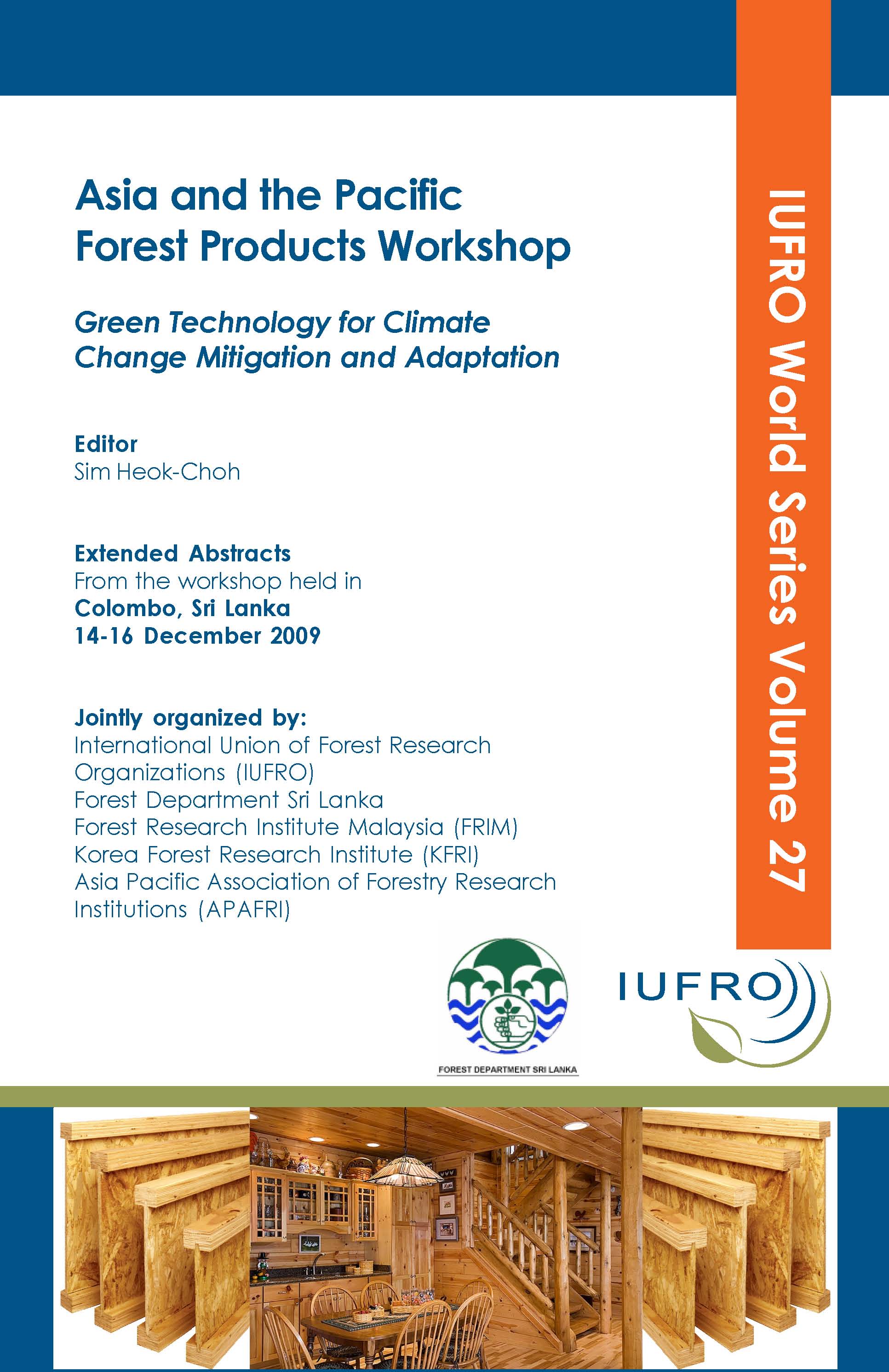A Forest Researcher without Borders: Interview with IUFRO President Niels Elers Koch
At the IUFRO World Congress 2010, Professor Niels Elers Koch, Director General of Forest & Landscape Denmark, a national centre at the University of Copenhagen, Denmark, was elected IUFRO President for the period until the next IUFRO World Congress in 2014. He follows Professor Don Koo Lee, Korea, in this position, recognizing his contributions to the development of IUFRO in the past five years.
Q: Professor Koch, at the beginning of your first speech as IUFRO President at the closing of the XXIII IUFRO World Congress in Seoul, you underlined the importance of IUFRO for your personal career as a forest scientist. What can IUFRO do for a forest scientist today?
K: When I was 25 years old, I participated in my first IUFRO World Congress. It was held in Oslo, Norway, in 1976. That changed the rest of my life – to the better. IUFRO provided me with a global network of the best researchers in the area I studied. I also met with colleagues who became some of my best and everlasting friends. And I got a much better understanding and appreciation of other cultures through IUFRO. I am sure that IUFRO can do the same for forest scientists today. As “the global network for forest-related research” it offers excellent opportunities to exchange knowledge and experience, meet new colleagues and friends from all over the world and, thus, become a true “forest researcher without borders”. Read more…
2 New IUFRO Publications
2 volumes of IUFRO’s World Series have just been newly published. The IUFRO World Series was designed to give IUFRO officeholders a possibility to make their expertise known to a larger public. In most cases, reports resulting from IUFRO meetings, IUFRO Task Force reports or results from the work of IUFRO Special Projects and Programmes are published in this series. The main focus is on original research devoted to specific themes either in the form of collected articles or as single extensive contributions.
—————————-
Volume 25: Forests and Society – Responding to Global Drivers of Change
IUFRO Special Project World Forests, Society and Environment IUFRO-WFSE
Many of the world’s forests and forestry are undergoing far reaching changes. An increasing number of global, complex, interacting environmental and socio-economic drivers of change affect forests and society. This book focuses on identifying the main global drivers of change and their direct and indirect effects on forests, forestry and forest dependent people. It proposes ways to reduce the adverse effects of these drivers and to take advantage of the benefits and opportunities they might bring.
To learn more about this publication, visit: http://www.iufro.org/science/special/wfse/
Climate change is a global problem, with global causes and effects. Climate change affects the basic elements of life for people around the world – access to water, food production, health, and the environment. Hundreds of millions of people will potentially suffer from hunger, water shortages, and more frequent severe natural disaster such as droughts, typhoons and floods, as the climate changes. Addressing climate change and dealing with the impacts requires urgent efforts by all.
The main objective of the workshop was to provide a forum for linking various international, regional and national agencies and institutions dealing with climate change issues in forest products processing and utilization, and to share strategies, experiences and knowledge, related to green forest products technology.
For more information, visit: http://www.iufro.org/publications/series/world-series/#c16554
XXIII IUFRO World Congress: The Seoul Resolution
In the Seoul Resolution, IUFRO sets its goals for the coming years.
THE SEOUL RESOLUTION
The XXIII IUFRO World Congress “Forests for the Future: Sustaining Society and the Environment” provided a unique forum for presentation and discussion of the results of current global research related to forests and trees. The Congress explored a broad range of current and emerging issues of great importance for the future of forests and their capacity to provide the environmental, economic, social, cultural, and health benefits that sustain rural and urban societies worldwide.
During this historic International Year of Biodiversity, in anticipation of the upcoming International Year of Forests, and recognizing the vital role that forest science must play in meeting the common challenges we face worldwide, IUFRO commits itself to:
Focusing more on scientific research and international collaboration in six thematic areas: Forests for People; Climate Change and Forestry; Bio-Energy; Forest Biodiversity Conservation; Forests and Water Interactions; and Forest Resources for the Future.
Further, IUFRO commits itself to the following goals:
Improving communication within the IUFRO structure, with other scientists, students, forest professionals, and the public; and increasing visibility and accessibility of research findings;
Expanding and deepening IUFRO’s work at the science-policy interface by enhancing scientific contributions to international processes, conventions, and organizations; responding rapidly to new policy issues; expanding partnerships and collaborating with international organizations and processes through the provision of scientific information and policy options;
Urging member institutions and external stakeholders to renew and strengthen forest monitoring activities and support global monitoring efforts;
Improving IUFRO’s capacity to expand its membership and funding base to provide support for the full range of IUFRO’s activities to benefit the forest researchers belonging to IUFRO’s member organizations; and
Promoting high-quality forest-related research and expanding IUFRO’s capacity for interdisciplinary cooperation; strengthening scientific capacity; relating the work of all IUFRO units to the six thematic areas; broadening IUFRO’s membership base; and identifying emerging issues and changing paradigms.
THE SEOUL RESOLUTION – LA RESOLUCIÓN DE SEÚL – LA RESOLUTION DE SEOUL – DIE RESOLUTION VON SEOUL


